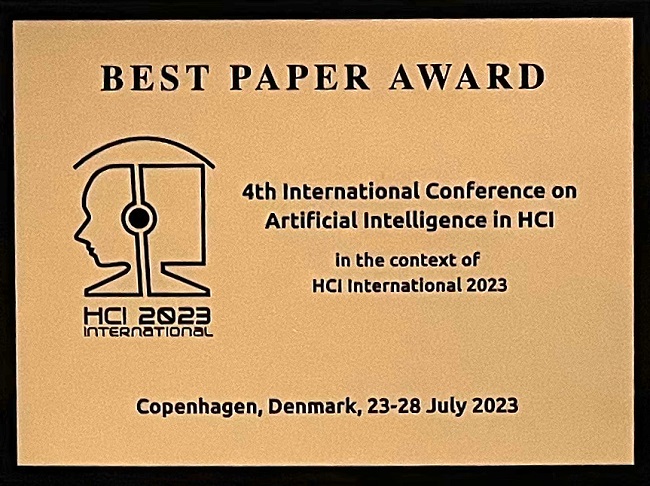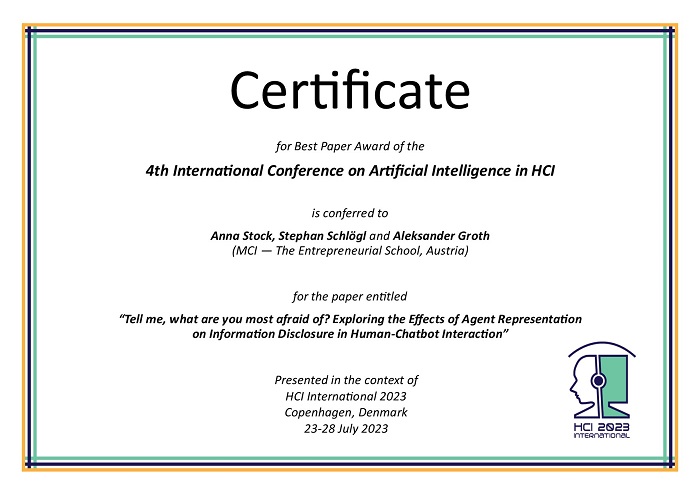
Best Paper Award for the 4th International Conference on Artificial Intelligence in HCI, in the context of HCI International 2023, Copenhagen, Denmark, 23-28 July 2023

Certificate for Best Paper Award of the 4th International Conference on Artificial Intelligence in HCI
The award has been conferred to
Anna Stock, Stephan Schlögl, and Aleksander Groth
(MCI - The Entrepreneurial School, Austria)

Anna Stock
(presenter)
for the paper entitled
"Tell me, what are you most afraid of? Exploring the Effects of Agent Representation on Information Disclosure in Human-Chatbot Interaction"
Presented in the context of
HCI International 2023
Copenhagen, Denmark
23 - 28 July 2023
Paper Abstract
"Self-disclosure counts as a key factor influencing successful health treatment, particularly when it comes to building a functioning patient-therapist-connection. To this end, the use of chatbots may be considered a promising puzzle piece that helps foster respective information provision. Several studies have shown that people disclose more information when they are interacting with a chatbot than when they are interacting with another human being. If and how the chatbot is embodied, however, seems to play an important role influencing the extent to which information is disclosed. Here, research shows that people disclose less if the chatbot is embodied with a human avatar in comparison to a chatbot without embodiment. Still, there is only little information available as to whether it is the embodiment with a human face that inhibits disclosure, or whether any type of face will reduce the amount of shared information. The study presented in this paper thus aims to investigate how the type of chatbot embodiment influences self-disclosure in human-chatbot-interaction. We conducted a quasi-experimental study in which n=178 participants were asked to interact with one of three settings of a chatbot app. In each setting, the humanness of the chatbot embodiment was different (i.e., human vs. robot vs. disembodied). A subsequent discourse analysis explored difference in the breadth and depth of self-disclosure. Results show that non-human embodiment seems to have little effect on self-disclosure. Yet, our data also shows, that, contradicting to previous work, human embodiment may have a positive effect on the breadth and depth of self-disclosure."
The full paper is available through SpringerLink, provided that you have proper access rights.